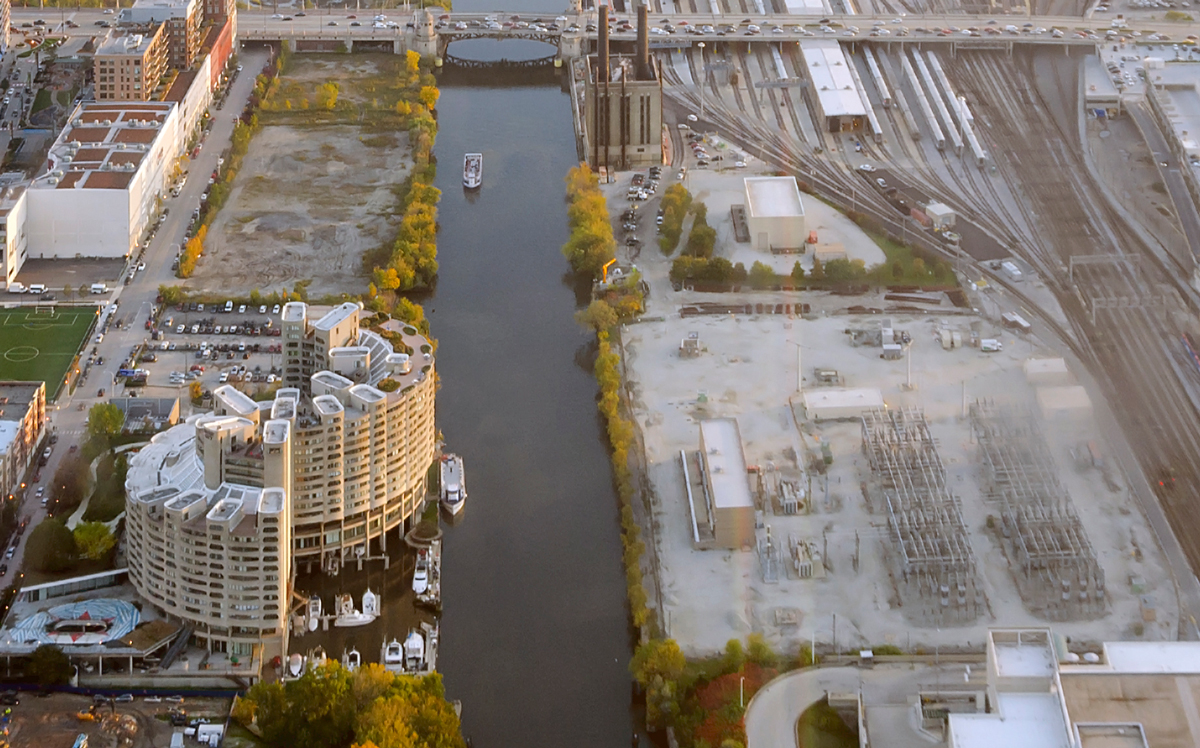Trending
River City saga highlights complexities, popularity of condo deconversions
Here's why the often complex deals are worthwhile to investors

Anyone who has bought or sold a home knows the legal land mines, financial obstacles and emotions that can gum up a deal.
Now, imagine trying to buy a building made up of hundreds of individual homeowners, all with their own unique financial situations and their own levels of attachment to their homes.
That’s exactly what investors are facing in the growing condo deconversion market, where investors buy condo buildings and then “deconvert” them into apartments.
A confluence of market events, led by intense demand for rental units, has made condo deconversions all the rage in Chicago. But to cash in on the trend, investors and developers are having to navigate a complex process, experts in the field said.
“You have people get emotional, who don’t want to uproot their families. Then multiply that by 10 or 100,” said Sonny Ginsberg, an attorney with Ginsberg Jacobs who has worked on deconversions on behalf of lenders, investors and condo associations. “It’s sort of by necessity the Wild West, because of the inherent complexities built into the process.”
Condo deconversions in Chicago are having a banner year in 2018. Two of the year’s biggest deals show the unique issues that come with the transactions.
The largest deconversion deal ever in the city was struck in August, when New York-based ESG Kullen paid $112 million for the 391-unit tower at 1400 North Lake Shore.
The second biggest deconversion would have been the sale of the River City complex in the South Loop, but that deal has seen a number of fits and starts that have thrown its completion into question once again.
In September, condo owners in River City, 800 South Wells Street, approved a deal to sell the 449-unit complex to Marc Realty Capital for $90.5 million, but two lawsuits are threatening to derail it.
In one of the suits, the condo board is seeking to clear up a title snafu that threatens to hold up the sale. The other suit was filed by unit owners against the condo board, with owners alleging the board stuffed the ballot box to approve the sale and helped Marc Realty reach side deals with some owners to win approval.
The River City saga shows just how complex these deals can be.
For starters, buyers have to come up with a dollar figure that will garner the 75 percent of unit ownership needed to sign off on the deal. Sometimes, the process can look like a standard negotiation. Other times, it can get convoluted very quickly.
(In Illinois, state law requires a 75 percent approval threshold for a condo sale to go through — a threshold that is relatively investor-friendly, sources said. In Florida, which is also seeing plenty of condo deconversions, the threshold is 80 percent.)
In the River City case, Marc Realty’s original offer of $100 million was accepted, but the firm pulled back after it said it found costly needed repairs. Marc Realty then made a counter-offer of $89 million, but owners rejected it. In September, both parties agreed to a $90.5 million price tag — or at least they did until the sale was challenged in court.
It often takes longer to come up with an offer for a deconversion project, Ginsberg said. Units are often not uniform, and maintenance issues could be lurking The price has to appease investors — who are only worried about profit — and owners who still live in their units might have sentimental reasons to oppose a sale.
“There’s a lot more variety,” Ginsberg said. “Every unit can be different. Condo associations can have different personalities.”
In their lawsuit, unit owners at River City are accusing the condo association of helping Marc Realty reach so-called sweetener deals with some owners in order to secure their votes to sell. Those deals are not only common in condo deconversions, but they’re often good practice for investors, experts said.
“You have 300 individual situations and you have to solve for everyone,” said a real estate executive who has done a half-dozen deconversions and asked to remain anonymous. “Sometimes you have to help individuals solve their cases.”
Investors often will agree to pay more for units that have been recently upgraded, which is what ESG Kullen did after its first offer on 1400 Lake Shore was rejected.
Other times, enticing people to sell can mean helping an owner find a new place and with moving and closing expenses, sources said.
“When the vote [to sell] is close, that’s common and it’s not wrong,” Ginsberg said of sweetener deals. “The problem is then the guy next door says, ‘I want that valuation, too.’”
One challenge for investors is how to factor in unit owners’ emotional investment to their homes, which is often the major hurdle in these deals, experts said.
Some owners have practical reasons for not wanting to leave, like having kids in local schools or having family living down the block, sources said. Some simply don’t want to leave their longtime homes, and that is a factor investors have to work around.
“Every building people are living in is special to them. It becomes more emotional,” said David Ruttenberg, partner at Marc Realty. “You’ve got a multitude of owners. There’s a lot of moving pieces.”
Ruttenberg said he could not talk about the River City deal because of the pending litigation but agreed to talk about the complexities of deconversions in general.
One of the main differences between condo deconversions and any other property deal, Ruttenberg said, is that not only are you working with multiple decision-makers, but they’re often not savvy about the world of investment sales.
That dynamic can make the sale a more public affair, he said.
“They’re going to talk to the press more, they’ll leak more, there will be more issues,” Ruttenberg said. “When it’s investor to investor, there will be some issues, but they’re not emotionally attached to it.”
Despite the complexities of the process, investors continue to pursue condo deconversions for a simple reason: because owning an apartment building, particularly in crowded neighborhoods saturated with millennials, is a valuable prospect in today’s real estate market.
“They are 100 times more complex,” said Ron DeVries, senior managing director with consulting firm Integra Realty Resources. But “it’s an opportunity to acquire an asset in a market where there isn’t much product offered for sale.”




